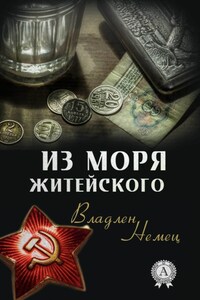Not the bladebut the hand on the hilt
Not the prizebut the blood that is spilt.
Not the songbut the cry of the steel
Not the painbut the ones who can’t feel.
Not the firebut the pulse of the heart
Not the fearbut the standing apart.
Not to weepbut the tears running red
Not to sleepbut to dream with the dead.
It began with a city, a city in another universe.
Nathan Ward dreamed of the city, as he had dreamed of other cities long before. Most people dream of other worlds, dreamworlds parallel to our own yet subtly different, where strange things are familiar and familiar things strange – the spin-off regions of the subconscious mind. But the worlds in Nathan’s dreams were real, or seemed real, depending on the nature of reality. He went to the kind of school where teachers talked about philosophy and quantum physics, so he knew the chair he was sitting on was provably nonexistent, and the entire cosmos was made up of particles too small to believe in, popping in and out of reality whenever scientists studied them too closely. (Sneaky things, particles.) Nonetheless, Nathan was a down-to-earth boy who had yet to find a magical country at the back of a wardrobe, so it was unnerving to find one in his own head. The previous summer he had almost got lost in such a dream, and had been unable to make his way back without help.
Sometimes on these journeys he was merely a disembodied thought; at others, as the dream grew more solid so did he, while his sleeping form would fade, even vanish altogether. He was a weekly boarder at Ffylde Abbey, sharing a dormitory with other boys, and a tendency to dematerialize in the night didn’t always pass unremarked. Particles can get away with such behaviour more easily than teenage boys. At home his mother, his best friend, and the man he called uncle all knew of the problem, so there was no need to try and explain the inexplicable, but there were moments when he still felt unsafe. As if there was a hole inside his head through which his life and his very self might slip away. Dreams can too easily become nightmares, and when your dreams are real, the nightmares have teeth …
The strange thing was, when he dreamed of the city, he knew it wasn’t the first time, though the earlier times were all but forgotten, immured in a locked cupboard at the back of his memory. The dream gave him a feel he couldn’t mistake, like when you return to a place visited in early childhood. There’s nothing you recognize, yet you know you’ve been there before.
There had been a city in his dreams many times in the past, the city of Arkatron on Eos – a city at the end of time, last stronghold of a high-tech, high-magic civilization in a universe that was dying. It had been a futuristic metropolis of soaring sky-towers and airborne vehicles that wheeled and dipped around them like giant birds, and a population mantled and masked and gloved against the poisonous sunlight – a science fiction city with a ruler called the Grandir – a ruler thousands of years old, whose face was never seen and whose true name was never spoken – a ruler who had once had a whole cosmos for his empire.
But this city was different. (In his mind, he called it a city, giving it the benefit of the doubt, though quite possibly it was only a town.) It sprawled over two hills, the higher rising into a bastion of rock with a grey-walled house perched on the top, built of the same stone and blending with it, so you couldn’t tell where the crag ended and the house began. The lower hill was a hump-backed ridge crested with pointy gables and spiked with chimney stacks, but only one or two emitted a thin spindrift of smoke, and as his vision drew nearer Nathan saw windows without panes, doors ajar on empty halls, new grass growing over untrodden roads. It was a ghost town – or ghost city – except there seemed to be no ghosts left, only endless vacancy. There weren’t even any birds.
In Arkatron, focus of a universe that was ending, the city thrived after a fashion, crawling with people and lights and life, yet here, though the universe showed no signs of imminent demise, the city was dead. A Marie-Celeste of a city, whose footsteps had barely faded and whose voices might have been stilled only a little while ago. It reminded Nathan of towns pictured in history books, the outer houses made of mud bricks and rickety timbers, with shaggy thatching on the roofs, the inner of stone and tile. The hilltop house was the largest, poised in the eye of the wind, weatherbeaten and grim, sprouting irrelevant battlements and tiny turrets as if it were trying to become a castle, though no one would be fooled. It had neither moat nor portcullis, and on one side a steep little garden sloped down to wall and road. As Nathan’s thought winged earthwards he saw four children were playing there.













